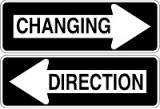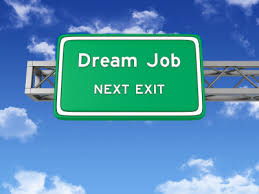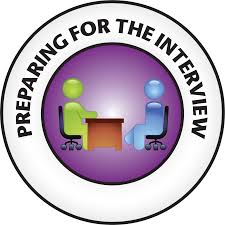 Are you willing and able to change direction?
Are you willing and able to change direction?
Business changes at a dramatic pace. Your career may soon be outdated or obsolete due to shifts in market conditions, changes in consumer preferences, and/or emerging technology.
Organizations list being adaptive, flexible, and willing to change as traits sought in employees and leaders. Are you mindful and aware of your abilities and willingness in these areas?
Research shows that awareness and openness helps you use new information quickly and sparks the creativity within you. When teams of people have these traits and solid communication, innovation abounds.
Additionally, career opportunities abound. Are you open to seeing the opportunities? Are you adaptive, flexible and willing to make clear choices to sustain a remarkable career and support an organization’s goals?
One of the world’s best coaches, Louis Emond, a wonderful mentor and later a close friend coached, taught, and helped me become aware of how my old method of making choices needed to change. This awareness allowed not only me to move to a new level of growth, but it also helped my team move to a new level of openness and growth. This new level of growth, speed of decision making and overall direction caused changes to the team with some employees feeling like the job no longer suited them.
Teams will grow, shift and adjust. It is important to be willing to say, “We wish you the best” to a team member who does not desire to adjust to new conditions. Our team learned to view these shifts as natural changes like the changing of seasons.
Lessons from Louis helped our team learn to shift — they were now prepared to change directions at critical junctions. Business occurs in community. Communities evolve.
The ability and willingness of people, groups and teams to shift impacts the pace of change and dictates how successful individuals, organizations, and communities are in navigating ever changing market conditions.
With the poise of a magician, Louis taught that managing your business, your career, and your team is about taking personal responsibility, demonstrating leadership, and planning for success. When you need to change directions, by all means, change directions. Execute a change, don’t ponder, worry or resist, EXECUTE.
As I recall, Louis often cited Vince Lombardi’s dictum of, “If it is to be, it’s up to me.” It is not about a right or wrong choice. It is about a choice. Every choice will be different based on individual truth, experience and point-of-view.
When a leader asks the team to change directions and a team member resists, most leaders will ask why and listen. If the leader’s direction is not influenced by the team and the direction set, then each team member will be asked to make his/her choice to support the direction or elect to join another team.
Every human and every member of the team makes choices. What will your choice be?
Action Tip:
This tip is from Louis. Leaders make choices and not all choices will be popular or the best. Will you choose to lead? Are you willing to ask your team to support your direction or choose to pick another? If so, here a few action items for the week:
- Identify who you are, who you want to be, and whom you will serve.
- Then make choices that: support who you are, who you are willing to be and whom you will serve. Your choices should inspire you to do the things that bring you fulfillment, inspiration, and joy.
You can choose to have a remarkable career, business and life and forge a path alone. Or you may choose to find a coach or mentor to partner with in order to grow at a faster rate.
The odds are you will have a lot more fun learning along the way with a coach and in community. Are you building your support team? The choice is always up to you.
Do you have a question about applying this action tip to be more fulfilled, inspired and satisfied in your business and career? Let’s talk. Contact us and ask your question.



 A few weeks ago,
A few weeks ago, 







